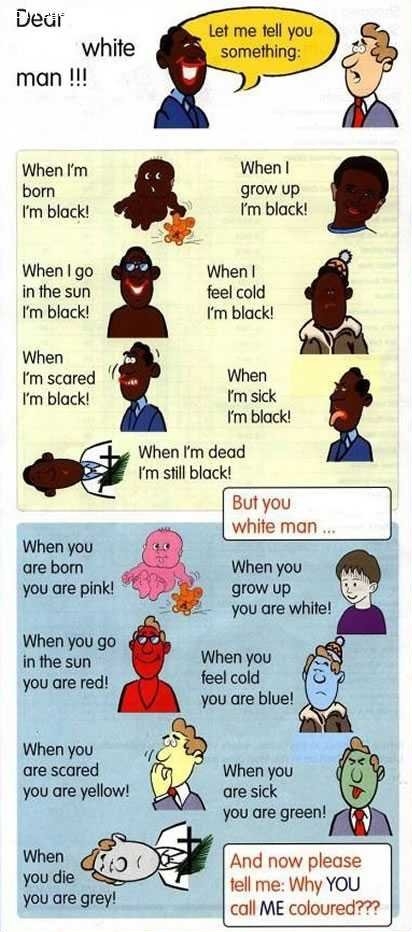 영어토론방 영어토론방 | Home>영어토론방 |
Culture Racial Discrimination in Korea
페이지 정보

본문

No Racial Prejudice
Time to Lay Legal Framework to Ban Discrimination
South Korea is no longer a "racially homogeneous" nation as it has been rapidly transforming itself into a multicultural society. But it has still a long way to go to eliminate deep-rooted prejudice and discrimination against foreigners. The country has little legal framework to ban racial discrimination as well as guarantee human rights and equal opportunities of migrant workers, foreign spouses and other residents from abroad.
A recent legal battle by a visiting Indian professor shows how deeply imbedded prejudice is in South Koreans' minds. On Friday, the Incheon District Court ordered a Korean man to pay 1 million won ($855) in fines for humiliating the 28-year-old scholar, identified as Bonojit Hussain. The accused, identified as Park, 31, was indicted of calling Hussain ``dirty'' and ``smelly'' on a bus in July.
Hussain immediately filed a complaint against the man with a police station in Incheon, just west of Seoul. The initial reaction from the police was quite disappointing as they tried to persuade the victim to drop the complaint and reconcile with the suspect. Claiming that he has endured a series of racially oriented humiliation from other Koreans, Hussain insisted on bringing Park to justice. Unquestionably, his patience had run out.
However, it is regrettable that the prosecution was unable to bring racism charges against the suspect because there is no law banning racial discrimination in this country. In the end, it had to indict Park on insult charges and the court fined him for his criminal act. It is the first time for a Korean to be indicted and subject to punishment for making racially motivated remarks against a foreigner. It has raised public awareness of racial issues in the country where 1.2 million foreigners reside, accounting for about 2 percent of the total population.
(From Korea Herald)
International marriages of Koreans and non-Koreans
There were 43,121 international marriages between Koreans and non-Koreans in 2005, up 21.6 percent from a year earlier, according to Korea National Statistics Office data published in the Korea Times newspaper on March 30, 2006. 11% of couples who married in 2007 were international couples. The majority of them involve South Korean males married to foreign females, from China, Japan, Vietnam, the Philippines, United States, Mongolia, Thailand, and Russia. The vast majority (80%) of these brides are ethnic Koreans living in China. The foreign males married to Korean females are from Japan, China, the United States, Bangladesh, Pakistan, the Philippines, and Nepal. Between 1990 and 2005, there have been 159,942 Korean males and 80,813 Korean females married to foreigners.
Brides imported from China, Vietnam, and elsewhere
In recent times, about one third of South Korean men in rural areas married women from abroad, according to Korea National Statistics Office data published in the Chosun Daily newspaper on March 30, 2006.
Brides have come to South Korea mainly from China and Vietnam. The most common explanation for this phenomenon is that there is a lack of South Korean women who are willing to marry men living in rural areas. Chinese citizens who are ethnic Koreans (called "Joseon-jok" by South Koreans) and Vietnamese are preferred as imported brides. Joseon-jok from China have the same ethnic background as Koreans, and some South Koreans believe that Vietnamese women look relatively similar to Koreans. Also, many South Koreans believe that these groups of women are willing to move to South Korea for economic reasons, are more capable of adapting to their new environment compared to women from other countries, and become dedicated and loyal wives.[5]
Economic factors play a strong role in these marriages, as it is usually less educated Korean men from rural areas who marry mostly less educated and poor foreign brides.
Marriages between South Korean men and foreign women are often arranged by marriage brokers or international religious groups. There is mounting evidence to suggest that there is a statistically higher level of poverty, violence and divorce in the Korean men married to foreign women cohort.
(From Wikipedia http://en.wikipedia.org/wiki/Marriage_in_South_Korea)
Question
1. Talk about what you felt when you saw the cartoon?
2. Considering the racial discrimination in Korea what is concentrated on the colored people,
what is the problem what we'll meet?
(Problem about increased rate of the international marriage with colored asian like Vietnamese,
Filipina / Adaptaion of Multicultural family's child / etc)
3. Think about the measures by central government, local government, social groups and individual.
댓글목록
등록된 댓글이 없습니다.

